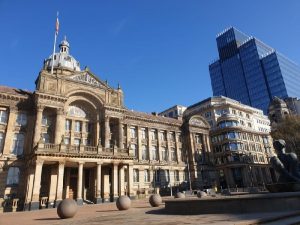Carpet maker Victoria not amused at £3.5m loss

A TURBULENT year in the life of Worcestershire carpet manufacturer Victoria culminated with an 8% reduction in revenue and a pre-tax loss of £3.52m, it was revealed today.
The past 12 months has seen major upheaval at the Kidderminster firm with a long-running – and often bloody – battle for control of the company’s boardroom dominating proceedings.
Full year results show a pre-tax loss of £3.52m (2012: £1.55m profit) on revenues of £70.9m (2012: £77.1m), a drop of 8.1%.
There was a 39.56p per share loss compared with a gain of 15.64p in 2012. Final dividend was 6p per share (2012: 7p).
The boardroom battles were not helped by a depressed market in Australia where revenues were down almost 8% on last year. This was compounded by weak trading in the UK and Ireland, where there was a 7.8% decline in sales.
Geoff Wilding, Victoria chairman, said: “2013 was the year when the chickens came home to roost at Victoria. Over recent years Victoria’s financial results have been sustained by overseas profits generated in a buoyant Australian economy. However, with a decline in the Australian market from early 2012, the underlying issues – poor execution of key strategies, failure to address the main issues facing the company and a lack of focus on shareholder value by previous boards and management – were exposed in the financial results for the year ended March 30 2013.”
To turn the situation around he said the business had focussed on cost savings and improving the company’s cash position.
In the UK, a substantial amount of overhead has been taken out and he said the impact of this on earnings would be reflected in the new financial year.
“There are more cost savings available but we need to balance the desire to minimise costs rapidly with the requirement to ensure changes are not made so quickly as to be disruptive to the functioning of the business,” added Wilding.
In Australia, the company’s two spinning mills have gone through a period of rationalisation. Capacity was reduced in response to the shift away from wool to synthetic carpets and this was followed by a number of redundancies. Costs associated with this move totalled c£0.9m.
However, Wilding said the board did not believe the restructuring went far enough as neither mill was operating at full capacity and early in the new financial year the two mills were consolidated on to one site at Bendigo. Although this will cost approximately £0.6m, Wilding said the move would reduce yarn conversion costs and ensure the Australian business remained competitive in what has become a very tough market.
Excessive stock levels have been reduced in both the UK and Australia and debt levels have also been cut.
“These steps have not been without some pain – reflected in the exceptional items – but were essential for future value creation. Further progress is needed (and the drive to minimise costs never ends) but the board believes a satisfactory start has been made,” said Wilding.
In outlook, he said the business anticipated economic and market conditions would remain difficult in the short to medium term as household incomes continue to get squeezed.
However, he said movement in the UK housing market offered some hope.
“We see the UK well positioned to significantly improve its performance in the new financial year and will be focussing on the cost reduction initiatives discussed elsewhere, together with the active management of the business,” he said.
Given the current performance and state of the Australian economy, it has also forecast tough times there.









